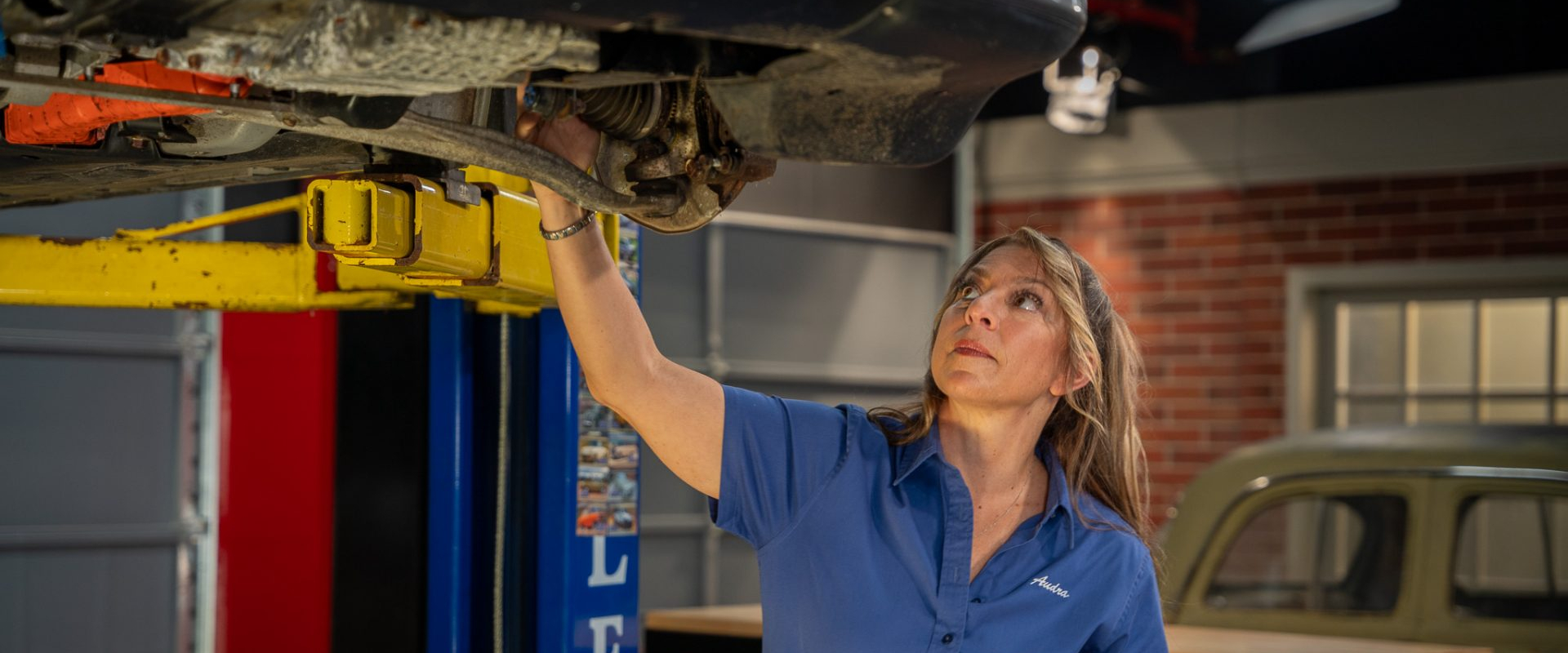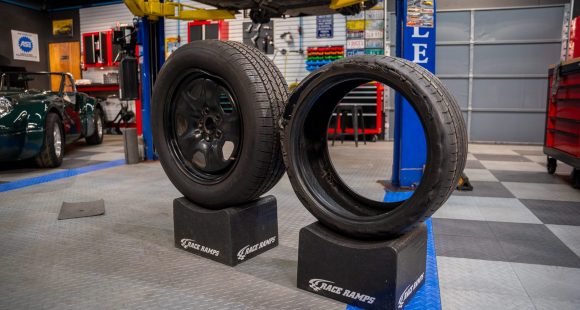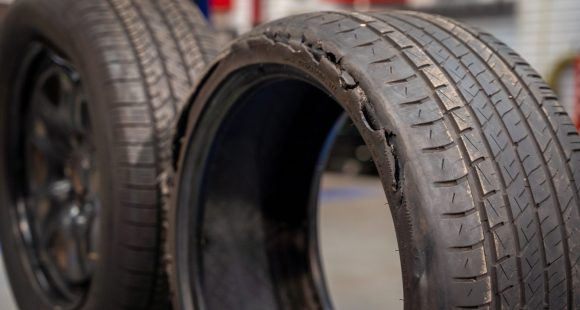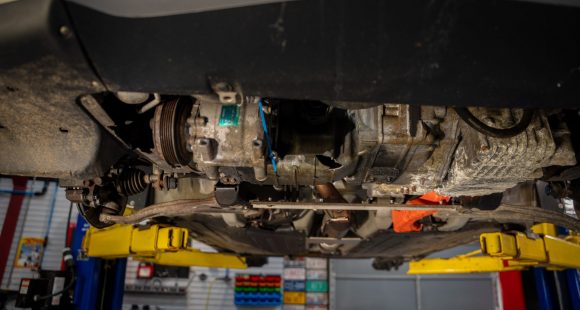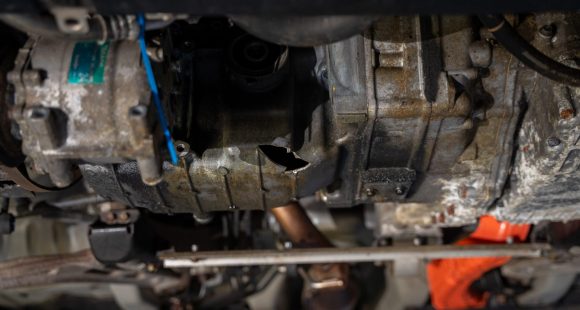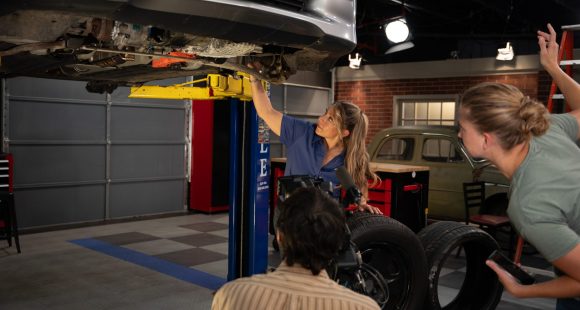Pothole Damage
We all know there are few guarantees in life, but we’re adding one more: potholes! Sometimes they’re just unavoidable. So, we brought in Audra Fordin to explain how those little bumps in the road can mean big trouble on MotorWeek’s “Your Drive!”
AUDRA FORDIN: Potholes: Yep, we’ve all hit one. Sometimes it is well-hidden on a road that you’ve never traveled, and sometimes it pops up on a familiar road overnight. Either way, running into a pothole can do serious damage to your car depending on the size of the hole, the speed you’re traveling and the health of your suspension setup.
First on your list is first thing that touches the ground, your tire. Unlike a puncture caused by sharp debris on the road, this kind of damage is often unrepairable and will require a new tire. It may not be immediately apparent, but still check for damage on the treads and especially the sidewall. Look for any scrapes, any gashes and bulges that could lead to a flat tire or a dangerous tire blowout.
Which leads to the next component, your wheel. Hit a pothole bad enough and your wheel could get cracked or damaged, especially around where the lip meets the rubber, where it meets the metal, like you can see right here. Odds are this will show the same signs as a bad tire leak, and the fix is straight forward. Either way, have the wheel repaired by a reputable repair shop or buy a replacement if the original is too far gone.
Now we’ll look at your primary suspension components. A bad enough bump or pothole can throw these parts out of alignment, meaning your car won’t track straight and you’re going to feel extra vibrations. And it could be more complicated than that.
It could be the sign of broken or bent parts; and we’re talking, like, control arms, and shock absorbers, and your tie rod ends. The good news is most of these can be replaced with relative ease. And the same can be said for a scraped exhaust and undercarriage panels.
But, hit a pothole good enough and you could damage your transmission pan or your oil pan, which will cause you a major leak. After taking the hit, if you hear, smell, or feel something abnormal, pull over safely and first check for leaks.
The best advice is to drive safely and be on the lookout for potholes and debris on the road. The best fix is to avoid it in the first place!
And if you have any questions or comments, reach out to us right here at MotorWeek.




